Siothrún
Has an MFA in Creative Writing Fiction, and M.Phil in ELT. Former Managing Editor for Zelda Dungeon, studying psychology/mental health, and is a freelance editor and writer.
Correspondent II
- Plebian Penman
- Common Writer
- Lurker
- Pssst
- Hand Raiser
- Vocal
- Outspoken
- Sharp-Eyed Citizen
- Town Watch
- Detective Deskman
- Penman Patrol
- Strategy
- 8-bit Hero
- Article of the Month
- ?
- Articles
11 - Featured
11 - Comments
189
- Ext. Comments
106 - Processed
90 - Revisions
71
- Topics
24 - Topics Taken
4 - Notes
30
- Topics Proc.
79 - Topics Rev.
21
- Points
4674 - Rank
19 - Score
2906
Latest Articles
Latest Topics
The Intent of the Author After Problematic ControversyThe intent of the author is usually considered somewhat unknowable, however, every now and then, a problematic controversy surrounds the author that makes a more critical look at their works necessary. For example, H.P. Lovecraft's racism features heavily in his work. However, some works are slightly harder to catch as being problematic until the author is caught in a controversy, like JK Rowling's stance on trans people or the current accusations against Neil Gaiman. Suddenly, some of the problematic themes in the works come to light, such as the description of Rita Skeeter or the treatment of the house elves in Harry Potter and the Goblet of Fire, for example. While the controversy itself obviously does not create the problems found within the works, it is important to consider the author's intent at the time of the work's creation as well as the cultural influences that may have led to the problematic writing being present. For instance, JK Rowling being openly against trans people in the present day does not change the problematic writing she engaged in at the time of her writing Harry Potter and the Goblet of Fire in 2000 with the descriptions of house elves or potentially racist naming conventions. That said, examining the British culture around the perception of such inclusions during 2000 could present a deeper understanding of how cultural acceptance of this kind of problematic writing shifted to what it is in the present day. The topic taker should do their best to answer the questions "How much does the intent of the author change after a problematic controversy, and how much of their intent may be partially based in problematic beliefs about society?" and "Does the controversy in the present day perhaps recontextualize and potentially change the meaning of what the author originally intended at the time of creation?" The examples above provide a bit of a starting point for authors that can be examined for the topic, if they wish to use them, though, given the very graphic not safe for work nature of the accusations levelled against Neil Gaiman, it may be best to use discretion if his work is examined, bearing in mind that the accusations are alleged at this point.
|
The Effect of Language on the Creative Writing ProcessWriting is a cognitive process that is influenced by the language a writer uses. For example, a writer taking part in the writing process through English may experience a different kind of writing process when writing in Japanese. The word choice or precision may vary, and the writer may have to figure out different strategies to engage with their writing process. For this topic, the topic taker should consider some of these similarities and differences in writing processes through a cross-cultural lens. What cultural aspects of a language could influence the way that a person approaches their tone or how they convey their writing process? Is there a middle ground among cultures when it comes to partaking in the cognitive task of the writing process? For example, would Western authors have similar writing processes to each other more so than non-Western writers, or would Western and non-Western writers have more in common with their creative writing process? How might word choice influence the writer's process, particularly if the language is more limited in how descriptive it is? Finally, how would different cultural mythologies or other stories influence a writer in their process? Links to get started: Effective Strategies for writing in an L1 and an L2: (link) main aim of this,across languages and text types. How words shape thoughts and emotions: (link) and other fields of,favour one decision or another. How Culture Shapes Creativity: (link) is believed to indirectly,same creative process across cultures.
|
Published | The Requirement of Hard Mode in Video GamesThe topic taker should analyze the requirements of some trophy lists to beat games on the "Hard" Difficulty and/or unlock special items or extra difficulties in the game. Examples that come to mind are Final Fantasy Remake and Rebirth, Kingdom Hearts III, DOOM, and the God of War series. The topic taker is free to include other games to the list that they may know about–the list serves as a jumping off point to get the topic taker started. The topic taker should consider the following for their article as well: – Is completing a game on Hard Mode enjoyable? – Is requiring finishing a game on a Hard mode restrictive or prohibitive in any way? – If someone chooses to play at difficulties other than hard mode, does that mean they are more or less of a gamer in the eyes of the game's community? – Should Hard Mode be a requirement for getting certain items or cutscenes or trophies, or should that content be available regardless of the difficulty? The topic taker should address these points with research and examples from the games they choose that is relevant to the points. If desired, the topic taker can look at the psychological research done on this subject and how it affects players' self esteem, if the research exists.
|
Analyzing Disturbing Themes in American 90s CartoonsRugrats (1991), Ren and Stimpy (1991), Pinky and the Brain (1995), Hey Arnold (1996), and Courage the Cowardly Dog (1999) all have moments or episodes with disturbing themes in them, such as Hey Arnold's train ride to the underworld, Archie needing surgery on his sinuses in the Rugrats, or Fred the hairdresser in Courage the Cowardly Dog, for examples. The topic taker should take the time to analyze some of these episodic themes and detail how, despite their disturbing nature, they might help viewer cope with their own complicated feelings around things like having a surgery, encountering an abandoned train, or getting a bad hair cut, though Fred seems to also serve as a message about boundaries and consent as well. Following that, the topic taker could also examine whether these disturbing themes had the opposite effect on viewers. In addition to this, the topic taker is free to also consider the psychological impact disturbing scenes like these might have on younger viewers, to better determine whether these themes are helpful, harmful, or somewhere in between when it comes to children's developing understanding of the world. Delving into the history of the time and what may have influenced the developers of the show to create such imagery and disturbing elements into their shows could also inform the intent behind certain episodes' existences. Taking a brief historical view could also bring some of the potential global current events of the time into focus and allow parallels to be drawn between those events and the show as well, which could provide an interesting lens into what American media was trying to say about the event. Also, having a holistic view of the cartoons mentioned could also shed light on what, exactly, the show was aiming to convey and why those disturbing episodes are important to the plot. Of course, the topic taker is free to examine shows outside of the ones mentioned, so long as they are an American production and were created in the 90s. However, it is advised that the topic taker consider how the breadth of additions could detract from the depth of the piece and the focus of the article. Wikipedia to Ren and Stimpy: (link)
|
Are Cinematic Universes Ruining the Superhero Genre of Movie?The topic taker should examine both the DCU Cinematic Universe and the Marvel Cinematic Universe. Specifically, the topic taker should consider the ways in which the handling of adapting comics to film or broader mediums brings attention to the superhero genre. For example, Spider-Man (2002) is considered to be a major success for a superhero movie, following the success of X-Men (2000). Does the attention that a cinematic universe creates gain new audiences for certain characters, regardless of the franchise, or is a divide created between the film adaptation and the comics? Are there aspects of the DCEU and the MCU that keep the superhero movie franchise fresh, or is the genre stagnating? Specifically, consider how Marvel's multiple phases might actually be daunting for a newcomer to the superhero franchise. The topic taker should dig into these questions, reviews of major movie entries, and should also consider what could be done to improve how superhero stories are told. Links to get the topic taker started: Spider-Man (2002) information: (link) X-men (2000) information: (link) Reception of DCU Cinematic Universe – (link) While a theory about the newly announced Superman movie, this seems to bring up some interesting points on the direction DCU may be taking, and hints at some thoughts surrounding the superhero movie genre: (link) While potentially biased, this Wikipedia page has a discussion board on the reception of the MCU, and may prove to be a decent starting point into understanding how the MCU performs: (link) article: List&text=The films within the franchise,14 Hugo Awards, winning two.
|
Pending | How can Short Form Web Videos Connect us?Short form web videos seem to have a more "rustic" quality to them. The quality of the video does not seem to matter when its short form. Over the years, platforms like TikTok and Xiaohongshu have a lot of content and followers. Of course, there could be some warnings issued about the dangers of endlessly scrolling on short form media, which is an aspect that the topic taker may want to consider. However, the main purpose of this topic is to consider how these kinds of short form videos could be used to connect us across cultures. The topic taker is free to consider the challenges involved with connecting with unfamiliar cultures, such as a language and cultural barrier. In addition to this, the topic taker can consider how the psychology of cross-cultural exchange might affect this exchange as well. An interested topic taker can consider a starting point in the following links: Discusses reactions to the recent influx of Americans to Xiaohongshu due to the potential TikTok ban – (link) Analysis on how short form media affects popular culture and people's way of thinking – (link) An overview of short form media and how it affects Gen Z – (link) If a topic taker has further questions, feel free to message me! |
The New Collectathon--Too Much to Do?Breath of the Wild and Tears of the Kingdom are newer Legend of Zelda games that feature open world mechanics and the return of the collectathon, in a sense. A collectathon is a type of video game where there are items and objects to collect in order to either progress in the game or obtain an upgrade. An older example of a collectathon would be Banjo-Kazooie or Jak and Daxter. In Breath of the Wild, the collectathon element of the game is Korok seeds, except there are about 900 to collect in the game. Tears of the Kingdom increases that number. The topic taker should see if this newer collectathon element is too much to do for the player. The topic taker is free to examine other newer forms of collectathons than the two mentioned in this topic. Research points to include: – The time it takes to do these collecting elements – The reward for completing the entire collection – Player feeling about the collecting element in the chosen game or series – The topic taker is free to also include an element of the psychology behind why collectathons work, if they wish. Links to get you started: Breath of the Wild Wiki: (link) Tears of the Kingdom Wiki: (link) An Explanation of Collectathons and how they transformed: (link) A brief list of modern collectathons: (link) |
Published | Isekai and its Pervasiveness in AnimeFrom Digimon to That Time I got Reincarnated as a Slime, isekai is a genre of anime that holds a lot of staying power in the industry. The topic taker should research: The beginning of the genre What made it popular Its impact on the anime industry Is the animation of isekai not to the same standard of other anime, or just drawn in simpler styles? Does the numerous amounts of isekai better or worsen working conditions for anime artists? What genres do isekai cross over with? Why is isekai so popular? Are there too many isekai? Will isekai bring about new genres of anime? By researching these aspects of isekai, the topic taker should be able to get a full picture of the how, what, and why of isekai. The topic taker is, as always, free to do more research on isekai, such as whether or not isekai helps its viewers by increasing positivity in their mood, help them relax from the stressors in life, and so on. Research links to get the topic taker started: (link) mainstream popularity of Isekai,fear of what's after death. |
Latest Comments
| Git Gud: Elitism and the "Correct" way to play | |
| Gender Roles in The Wheel of Time Series | |
I was really drawn to that subtlety and back and forth, too. I think that those themes really came full circle by the end of the series, and, it’s interesting to go back to the series after an initial reading and see what all was hinted at about how the One Power worked and how the characters’ ideas and identities in society shifted over time. I also really enjoy that we see multiple characters from other characters’ point of view, because that allows us to see how perception can often influence our ideas about how another person acts. Thanks for the comment! | Gender Roles in The Wheel of Time Series |
| The Queen in Yellow: How The Substance Reinvents a Gilded-Age Short Story | |
Hey, great article, and it was a pleasure to edit! I definitely think that Conker was a strange entry into the gaming industry. I remember seeing Bad Fur Day on the shelf, noticing the rating, and wondering what was in the game to warrant said rating, but never attempted to pick it up. I later watched a let’s play of it, and, there were definitely some…interesting choices. I have been playing through Daxter lately, and that game has a very similar feel to me as the one I got watching Bad Fur Day. | Conker's Bad Luck |
| Examining Final Fantasy VII's Remake and Rebirth: A Living Legacy | |
| Examining Final Fantasy VII's Remake and Rebirth: A Living Legacy | |
| Beyond the Page: Navigating the Enchanting Realm of Book-to-Movie Alchemy |
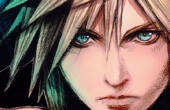
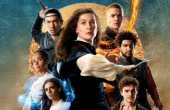

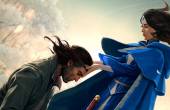
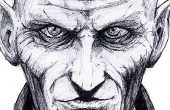
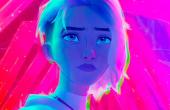
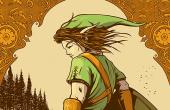

Really appreciated how this article tackled the subject matter. Also, it was a pleasure to edit! Thank you, and I’m looking forward to what you’ll write next!